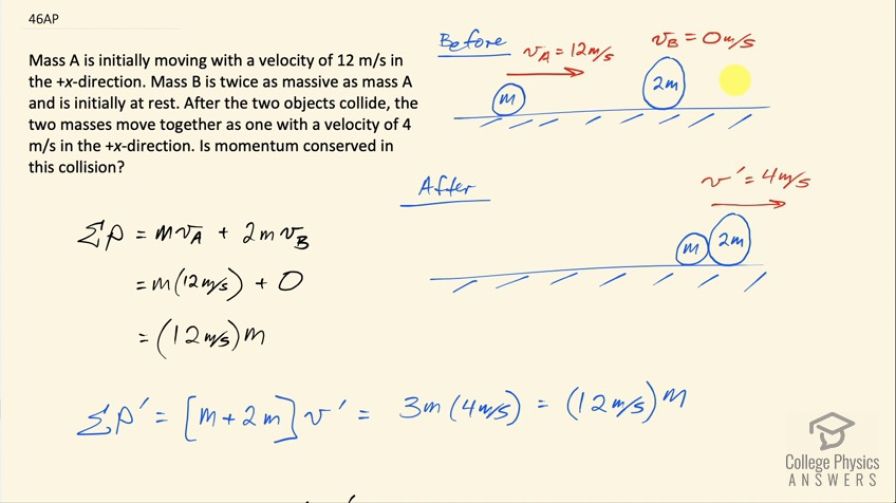Question
Mass A is initially moving with a velocity of 12 m/s in the +x-direction. Mass B is twice as massive as mass A and is initially at rest. After the two objects collide, the two masses move together as one with a velocity of 4 m/s in the +x-direction. Is momentum conserved in this collision?
Final Answer
Yes, momentum is conserved.
Solution video
OpenStax College Physics for AP® Courses, Chapter 8, Problem 46 (Test Prep for AP® Courses)

vote with a rating of
votes with an average rating of
.
Video Transcript
This is College Physics Answers with Shaun Dychko. Before colliding, mass A is moving with a velocity of 12 meters per second in the positive x-direction and mass B, which we are told is twice as massive as mass A, is initially at rest so v B is 0 and after collision, they will stick together we are told and have a common velocity of 4 meters per second in the positive x-direction and the question is is momentum conserved? So let's find the total momentum before collision: that's mass times v A plus 2 times mass times v B— this m just represents the mass of the object A and we are told that object B has a mass 2 times object A and v B is zero so this term is zero and we are left with 12 times m is the total momentum to begin with before collision. After collision, we have the two things stuck together so that's m plus 2m is the total mass of this thing multiplied by v prime and so that's you know, there's a coefficient 1 there— 1 plus 2 is 3m— times v prime, which is 4 meters per second, this works out to 12 meters per second times mass and these are the same— the total momentum before collision equals the total momentum after collision— so therefore yes, momentum is conserved.